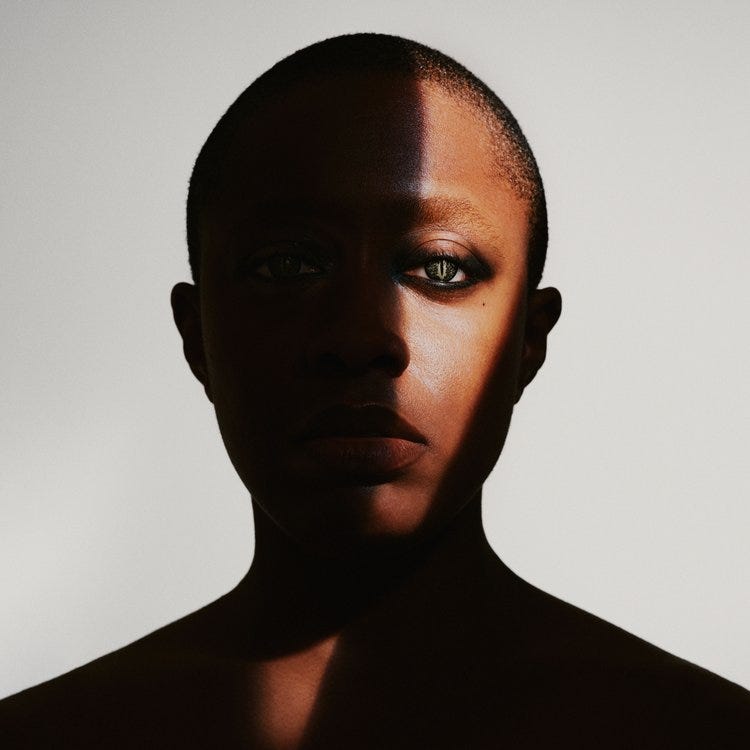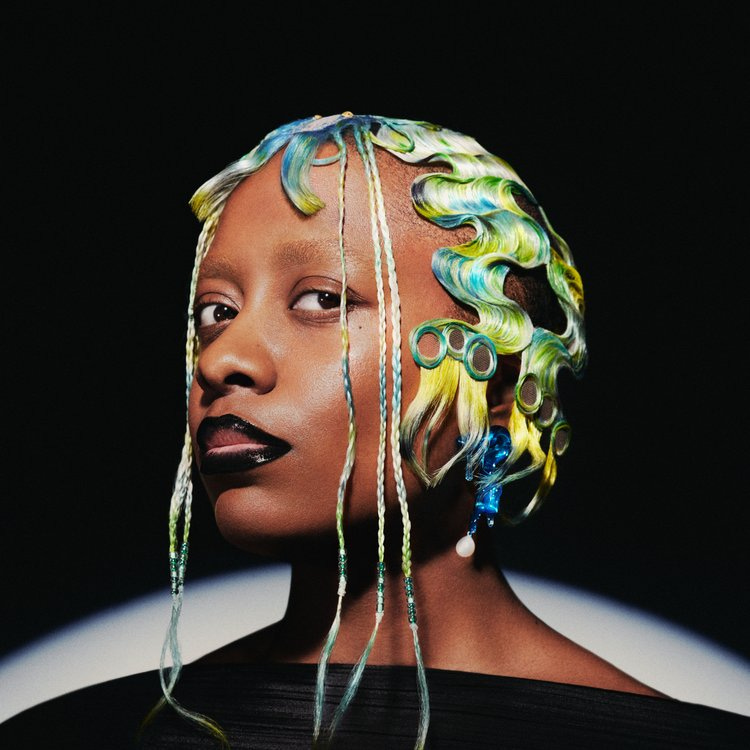Cecile McLorin Salvant and the Kingdom of the Lyric
The renowned jazz singer/composer/storyteller comes to UB for intimate performance
The most enduring artists in the history of jazz challenged traditions while simultaneously solidifying them.
The push and pull between building upon the past and burning it all down to create something new created a tension in the music, as if it was forever leaning forward, with one foot firmly on the bedrock of history and both eyes fully focused on the possibilities of the future.
Look back toward one of the true greats - Charlie Parker, Dizzy, Monk, Miles, Coltrane, Carla Bley, Wayne Shorter - and a fierce iconoclastic tendency will be readily apparent.
Composer, singer, visual artist, poet and storyteller Cecile McLorin Salvant has been fulfilling this mandate of envelope-pushing from the beginning of her career, when she announced her presence by claiming the top honor in the 2010 Thelonius Monk Competition.
Salvant arrived with an eclectic curation of sounds and influences, arranged in the service of unearthing new hybrids, drawing freely from the traditions of vaudeville and theatre, folk music, the blues, classical and pop, and presenting them all beneath an in-the-moment jazz umbrella. The Grammys came in due course, deservedly, but each new project refused to reproduce its predecessor, as the artist followed her own vision of eclecticism, motivated by a keen interest in narrative arcs, power dynamics, a broad palette of tonal colors, and the musics of broadly variegated cultures.
Oh, and she needs to find the humor in it all to make it feel real and genuine, she says.
I spoke to Salvant this week, in the midst of a tour that brings her to Lippes Concert Hall on the University at Buffalo’s North Campus, as part of the Slee Visiting Artist Series, on Friday, February 9, at 7:30 p.m. She discussed her Melusine album, the weight of ancestral inheritance, and the power of myth in music.
With Melusine, you inhabit the story of the mythical title character, a woman who is transmogrified weekly due to a childhood curse placed on her by her mother. Help us unpack this rich idea, and talk about its metaphorical implications for contemporary ideas of identity and inheritance?
Ancestral curses are literal to me. We all find ways to live with them.
I think Melusine shows this in a mythical way, with colors we otherwise don’t see in what can feel is the dullness of our daily lives.
In her incredible essay on you and your music, Dr. Angela Davis says that your music “always urges us to apprehend complexity and contradiction - that which can be simultaneously beautiful and a reminder that historical promises of expanding freedoms often reside within what has been marginalized as bizarre or evil.” This suggests that, at its core, your artistry is tied into the notion of the outsider, a creative person drawn to the sort of artistic process that can only be explored on the margins. Do you agree?
I agree, and I am honored.
A lot can be seen from the margins. In fact, the center, the neutral, is like the eye of the storm. There is a peace there, but there is a blindness as well.
Dr. Davis also discusses the idea of cultural transgression, and suggests that Melusine flies in the face of assumptions based on language, history and genre. Were these ideas part of your impetus for exploring this character and crafting this music?
My impetus for exploring this character was my intuition and my sense of humor. Those are the two things that drive the music and the drawings I make. When there’s a slight laugh in there somewhere, I know it’s right.
Language, history, and genre have always been completely mixed up for me.
From a musical perspective, does the language that you’re singing in on a particular piece change the way that you approach that piece, in terms of note selection, phrasing, rhythm and nuance? And do you have a favorite language to sing in?
Yes, they do affect it, but as a side-effect.
I don’t think in such a granular way. Phrasing, notes, rhythm, nuance are like courtesans and jesters in the kingdom of the lyric. They have not yet been able to overthrow the king.
I love singing in English and French the most, but it’s fun to get a different language in there and awkwardly try it!
You’ve often incorporated instruments that are not considered a standard part of jazz ensembles into your work. This gives the music an expansiveness that is sometimes missing from contemporary jazz. As a jazz artist, is it important to you to challenge accepted notions of ‘what jazz is’? And if so, is this born of a desire to kick the notions of stasis and repeating the past to the curb?
It’s important for me to challenge it for myself. Not only within the genre, but also to think about what music is, what singing is, what words mean.
I have a tendency to compartmentalize and to accept things as they are. This is why I love looking into history near and far. You see that this was all made up over the course of thousands of years.
Cecile McLorin Salvant with guest Curtis Lovell
Lippes Concert Hall in Slee Hall, UB North Campus
Friday, February 9, 7:30 p.m. $20/Free to students





